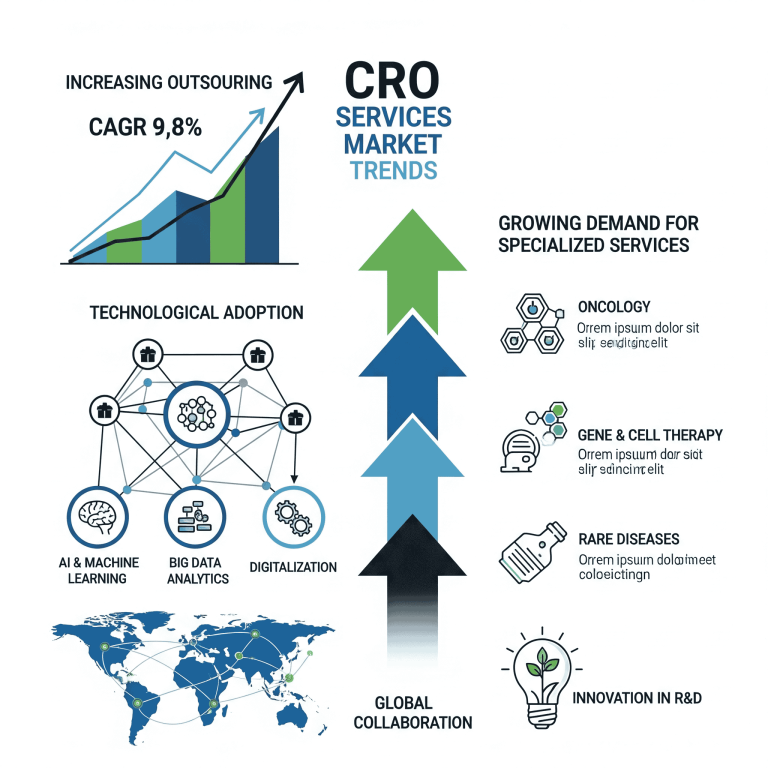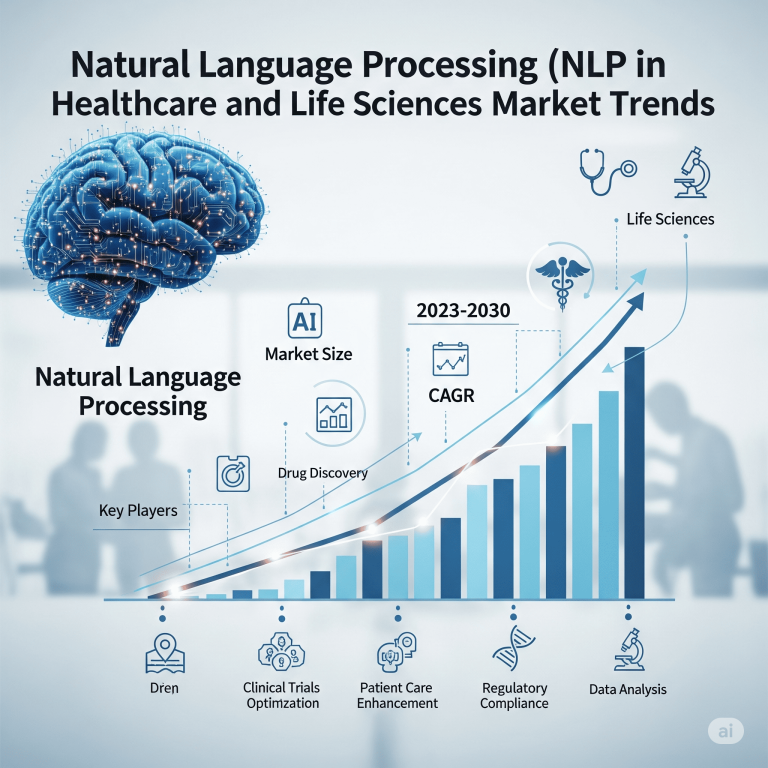
The global life sciences enterprise storage market is witnessing significant growth, driven by advancements in digital platforms and the increasing demand for secure, scalable storage solutions. Valued at USD 2.71 billion in 2024, the market is projected to grow at a CAGR of 5.65% from 2025 to 2034, reaching USD 4.67 billion by 2034.
This growth is fueled by rising data requirements in clinical trials, drug discovery, medical imaging, and patient monitoring, where huge volumes of sensitive data are generated. Here, we explore the key companies shaping this market and recent trends that are defining its future.
Key Market Highlights
-
Market Size (2024): USD 2.71 billion
-
Projected Size (2034): USD 4.67 billion
-
CAGR (2025-2034): 5.65%
-
Leading Region (2024): North America (45% revenue share)
-
Fastest-Growing Region (2025-2034): Asia Pacific
-
Top Storage Type (2024): Network-Attached Storage (NAS) – ~33% market share
-
Fastest Growing Storage Type: Cloud-based storage solutions
-
Dominant Deployment Mode: Hybrid storage systems (~42% in 2024)
Top Life Sciences Enterprise Storage Companies
1. Dell Technologies (EMC Storage)
About: Dell Technologies is a leader in enterprise storage solutions with its EMC product line, providing robust infrastructure for the life sciences sector.
Products: EMC Unity XT, PowerStore, and VxRail for life sciences workloads.
Market Cap: Approximately USD 62 billion.
2. NetApp Inc.
About: Known for its data management expertise, NetApp offers tailored solutions for genomic research and healthcare storage.
Products: NetApp ONTAP, AFF systems, and hybrid cloud services.
Market Cap: Around USD 22 billion.
3. Hewlett-Packard Enterprise (HPE)
About: HPE provides scalable storage systems optimized for bioinformatics and life sciences.
Products: HPE Alletra, Nimble Storage, and HPE GreenLake for storage.
Market Cap: USD 22 billion.
4. IBM Corporation (Storage & Cloud Infrastructure)
About: IBM leverages AI-powered storage systems for healthcare and life sciences.
Products: IBM FlashSystem, Spectrum Storage, and Cloud Object Storage.
Market Cap: USD 143 billion.
5. Amazon Web Services (AWS Life Sciences Cloud Storage)
About: AWS dominates cloud-based life sciences storage with its scalable and secure offerings.
Products: Amazon S3, Glacier, and AWS Life Sciences Data Solutions.
Market Cap (Amazon Inc.): USD 1.9 trillion.
6. Microsoft Azure for Genomics & Life Sciences
About: Microsoft Azure supports biomedical data storage and analytics for precision medicine.
Products: Azure Blob Storage, Genomics services, and AI health tools.
Market Cap (Microsoft Corp.): USD 3.4 trillion.
7. Google Cloud Platform (GCP) for Biomedical Data Storage
About: GCP provides high-performance storage solutions for genomics and healthcare.
Products: Google Cloud Storage, BigQuery, and Vertex AI for life sciences.
Market Cap (Alphabet Inc.): USD 2.4 trillion.
8. Pure Storage Inc.
About: Pure Storage offers all-flash storage arrays with high reliability for life sciences applications.
Products: FlashArray, FlashBlade, and Evergreen architecture.
Market Cap: USD 14 billion.
9. Hitachi Vantara
About: A subsidiary of Hitachi Ltd., it delivers enterprise storage systems with advanced analytics capabilities.
Products: Hitachi Virtual Storage Platform and Lumada DataOps Suite.
Market Cap (Hitachi Ltd.): USD 68 billion.
10. Seagate Technology
About: Seagate specializes in high-capacity storage systems ideal for medical imaging data.
Products: Exos enterprise hard drives and Lyve Cloud solutions.
Market Cap: USD 14 billion.
11. Western Digital Corporation
About: WDC provides hybrid cloud storage platforms for secure healthcare data management.
Products: Ultrastar Data60 and OpenFlex Data24.
Market Cap: USD 16 billion.
12. Oracle Corporation (Life Sciences Cloud Infrastructure)
About: Oracle’s cloud infrastructure supports clinical trial data and bioinformatics workloads.
Products: Oracle Cloud Infrastructure (OCI), Autonomous Database.
Market Cap: USD 370 billion.
13. Qumulo, Inc.
About: Qumulo offers hybrid cloud file storage designed for genomics and biomedical research.
Products: Qumulo Core, Cloud Q, and hybrid cloud storage solutions.
Market Cap: Private company (valuation approx. USD 1.2 billion).
14. DataDirect Networks (DDN)
About: DDN provides high-performance computing storage for life sciences workloads.
Products: SFA storage systems and EXAScaler appliances.
Market Cap: Private company (undisclosed valuation).
15. Huawei Technologies Co., Ltd. (Life Sciences HPC Storage)
About: Huawei delivers cutting-edge HPC and enterprise storage systems for big data in life sciences.
Products: OceanStor, FusionStorage, and CloudEngine solutions.
Market Cap: Private company (estimated revenue USD 99 billion).
Recent Developments in Life Sciences Enterprise Storage
-
Cloud adoption surging as life sciences organizations increasingly migrate to cloud-based solutions.
-
AI and machine learning integration in storage systems for faster genomic and clinical data analysis.
-
Hybrid storage systems gaining traction for balancing on-premise security and cloud scalability.
-
Rising demand for edge storage to manage decentralized clinical trials and remote patient monitoring data.
Request a customized case study tailored to your business needs and gain deeper insights
into healthcare market strategies: sales@towardshealthcare.com
FAQs
1. What is driving the growth of the life sciences enterprise storage market?
The market growth is fueled by rising demand for secure, scalable storage to manage massive datasets generated in drug discovery, medical imaging, and clinical trials.
2. Which region dominates the life sciences enterprise storage market?
North America held nearly 45% of the market share in 2024, driven by advanced healthcare infrastructure and digital transformation initiatives.
3. Which company leads in cloud-based storage for life sciences?
Amazon Web Services (AWS), Google Cloud, and Microsoft Azure are leading the cloud-based storage solutions for life sciences applications.
4. What is the fastest-growing storage type in the market?
Cloud-based storage is expected to grow at the fastest CAGR during 2025–2034, owing to its flexibility and cost efficiency.
5. How is AI impacting enterprise storage in life sciences?
AI integration enables faster processing and analysis of complex biomedical data, improving decision-making and research outcomes.
Source : https://www.towardshealthcare.com/insights/life-sciences-enterprise-storage-market-sizing
Invest in Our Premium Strategic Solution: https://www.towardshealthcare.com/price/5871







